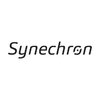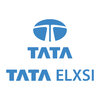
i
ITC Infotech
Filter interviews by
ITC Infotech Finance Manager Interview Questions and Answers
ITC Infotech Finance Manager Interview Experiences
1 interview found
I applied via Campus Placement and was interviewed before Jul 2023. There was 1 interview round.
(2 Questions)
- Q1. Ind AS 115, 2, 116
- Q2. Latest gst and incometax amendments
- Ans.
The latest GST and income tax amendments are important for finance managers to stay updated on regulatory changes.
GST amendments include changes in tax rates, input tax credit rules, and compliance requirements.
Income tax amendments may involve changes in tax slabs, deductions, and reporting requirements.
For example, recent GST amendments introduced a new e-invoicing system for businesses with turnover above a certain ...
Top trending discussions






Interview questions from similar companies

I applied via Naukri.com and was interviewed before Feb 2021. There were 2 interview rounds.
(1 Question)
- Q1. Details of LOI, articles of UCP, scope of ISBP
(2 Questions)
- Q1. What are your salary expectations?
- Q2. Share details of your previous job.
Interview Preparation Tips

I appeared for an interview in Apr 2017.
Interview Preparation Tips

Interview Questionnaire
1 Question
- Q1. Technical experience
Interview Preparation Tips
Experience: Aptitude and reasoning

Interview Questionnaire
2 Questions
- Q1. Tell us about your yourself? Requirements of your job?
- Ans.
I am a dedicated and experienced professional with strong leadership skills and a passion for driving team success.
Experience in managing teams and achieving targets
Strong communication and interpersonal skills
Ability to analyze data and make strategic decisions
Knowledge of industry trends and best practices
Proven track record of problem-solving and conflict resolution
- Q2. What is the best you can do for us?
- Ans.
I can bring strong leadership skills, strategic thinking, and a proven track record of driving results to the team.
Demonstrate my ability to lead and motivate a team towards achieving goals
Utilize my strategic thinking to identify opportunities for growth and improvement
Leverage my past successes in driving results and exceeding targets

I applied via Naukri.com and was interviewed in Nov 2017. There were 4 interview rounds.
Interview Questionnaire
1 Question
- Q1. How much is the length of all India roads
- Ans.
The length of all India roads is approximately 5.5 million kilometers.
The total length of all India roads is estimated to be around 5.5 million kilometers.
India has one of the largest road networks in the world.
The road network in India includes national highways, state highways, district roads, and village roads.
The length of national highways alone is over 100,000 kilometers.
The road infrastructure plays a crucial ro...
Interview Preparation Tips
Experience: Experience
General Tips: Be specific and attentive
Skills: Analytical Skills, Leadership
Duration: <1 week

Interview Questionnaire
1 Question
- Q1. Basic KYC AML

I applied via Recruitment Consultant and was interviewed in Mar 2021. There was 1 interview round.
Interview Questionnaire
2 Questions
- Q1. Tell me about your work.
- Q2. Tell me about your job profile.
Interview Preparation Tips

I applied via Referral and was interviewed before Jan 2021. There were 4 interview rounds.
Interview Questionnaire
2 Questions
- Q1. What tools do you recommend for content authoring?
- Ans.
There are several tools available for content authoring, depending on the type of content and the level of expertise.
For beginners, tools like Grammarly and Hemingway can help with grammar and readability.
For more advanced users, Adobe Creative Suite and Microsoft Office are popular options.
Content management systems like WordPress and Drupal are also useful for creating and managing content.
Collaboration tools like Go...
- Q2. Adobe Captivate is a standalone authoring tool and one of the best tools with rich features.
Interview Preparation Tips

Interview Questionnaire
2 Questions
- Q1. Why did you chose this role ?
- Q2. WHy are you quitting your existing company?
ITC Infotech Interview FAQs
Tell us how to improve this page.
ITC Infotech Interviews By Designations
- ITC Infotech Associate Information Technology Consultant Interview Questions
- ITC Infotech Lead Consultant Interview Questions
- ITC Infotech Associate Consultant Interview Questions
- ITC Infotech Software Developer Interview Questions
- ITC Infotech Associate IT Consultant 2 Interview Questions
- ITC Infotech IT Consultant Interview Questions
- ITC Infotech Software Engineer Interview Questions
- ITC Infotech Java Developer Interview Questions
- Show more
Interview Questions for Popular Designations
- Finance Executive Interview Questions
- Financial Analyst Interview Questions
- Accounts & Finance Executive Interview Questions
- Accounts & Finance Manager Interview Questions
- Finance Intern Interview Questions
- Assistant Manager Finance Interview Questions
- Senior Executive - Finance Interview Questions
- Financial Associate Interview Questions
- Show more
ITC Infotech Finance Manager Interview Process
based on 1 interview
Interview experience
Interview Questions from Similar Companies
Fast track your campus placements
ITC Infotech Finance Manager Reviews and Ratings
based on 4 reviews
Rating in categories
|
Associate Information Technology Consultant
5.1k
salaries
| ₹3.8 L/yr - ₹15 L/yr |
|
Lead Consultant
4.5k
salaries
| ₹9 L/yr - ₹35 L/yr |
|
Associate Consultant
906
salaries
| ₹2.5 L/yr - ₹17.5 L/yr |
|
Software Engineer
501
salaries
| ₹3.5 L/yr - ₹14.1 L/yr |
|
Senior Software Engineer
385
salaries
| ₹6.5 L/yr - ₹25.5 L/yr |

Wipro

EPAM Systems

L&T Technology Services

Coforge
- Home >
- Interviews >
- ITC Infotech Interview Questions >
- ITC Infotech Finance Manager Interview Questions


















